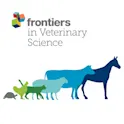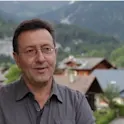1,071 news posts

Frontiers news
04 Nov 2015
New specialty section “Mechatronics” now open for submissions!
We are very pleased to announce the launch of Frontiers in Mechanical Engineering latest specialty section, Mechatronics, led by Chief Editors Prof. Andrew Fleming (University of Newcastle) and Prof. Saman Halgamuge (University of Melbourne). The section seeks to focus on developing research into mechatronic-related technologies with a high societal impact and has an Associate Editorial Board currently composed of the following researchers (more to follow soon): Sumeet S. Aphale (University of Aberdeen, UK) Garrett Miles Clayton (Villanova University, USA) Nicola Ivan Giannoccaro (University of Salento, Italy) Hamid Reza Karimi (University of Agder, Norway) Kam K. Leang (University of Utah, USA) Darwin Lau (The Chinese University of Hong Kong) Thrishantha Nanayakkara (King’s College London, UK) Upeka Kanchana Premaratne (University of Moratuwa, Sri Lanka) Yuen Kuan Kong (University of Newcastle, Australia) Mission Statement: There is an ever increasing demand for higher performance and miniaturisation in mechatronic systems such as precision machinery, automotive systems, robotics, biomedical devices, and motion control. This demand is driving the development and integration of new mechatronic technologies for sensing and actuation, design and fabrication, and control (…) Read more here. Of the initiative, Prof. Fleming has stated: “A demand for higher performance and miniaturisation in mechatronic systems such as semiconductor process machinery, atomic force […]

Frontiers news
04 Nov 2015
Frontiers in Veterinary Science launches new sections
We are very pleased to announce the launch of Frontiers in Veterinary Science latest specialty sections: Veterinary Epidemiology and Economics led by Prof. Andres M. Perez, University of Minnesota College of Veterinary Medicine, USA Veterinary Imaging led by Prof. Fintan John McEvoy, University of Copenhagen, Denmark Veterinary Regenerative Medicine led by Prof. Jennifer Genevieve Barrett, Virginia-Maryland College of Veterinary Medicine, USA Veterinary Pharmacology and Toxicology led by Prof. Arturo Anadón, Universidad Complutense de Madrid, Spain Veterinary Surgery and Anesthesiology led by Prof. Christopher R Byron , Virginia-Maryland College of Veterinary Medicine, USA “This is an exciting time for Veterinary Surgery and Anesthesiology, as advances in diagnostic techniques, treatments, and understanding of disease mechanisms are rapidly progressing. This specialty section of Frontiers in Veterinary Science will be an excellent forum for rapid dissemination of high-quality research to investigators and clinicians in all facets of the profession.” – Christopher R Byron, Specialty Chief Editor Veterinary Surgery and Anesthesiology Frontiers in Veterinary Science is led by Field Chief Editor Prof. Mary Christopher from the University of California-Davis, USA and it currently has 16 Specialty Chief Editors. Over 1,100 leading researchers and clinicians serve on the editorial boards that now span 14 specialty research areas ranging from Parasitology and Comparative and Clinical Medicine to Livestock Genomics […]

Frontiers news
21 Oct 2015
Geochemistry section launches in Frontiers in Earth Science
We are very pleased to announce the launch of Frontiers in Earth Science latest specialty section, Geochemistry, led by Chief Editors Prof.Craig Lundstrom (University of Illinois) and Prof. Martyn Tranter (University of Bristol). This specialty section encompasses both high- and low-temperature aspects of the discipline, with an Associate Editorial Board currently composed of the following researchers (more to follow soon): Kirsty C. Crockett (Scottish Association for Marine Science) Andrew Mitchell (Aberystwyth University) Mark Skidmore (Montana State University) Jean-Louis Vigneresse (Georesources Université de Lorraine) Mission Statement: Modern geochemistry often focuses on determining how elements are distributed between different reservoirs that make up the Earth, the Solar System or beyond. However, its ultimate goal is identification and in-depth understanding of the mechanisms by which these chemical reservoirs form and evolve, thus improving our understanding of how the Earth works as a geochemical system. Indeed, the flux of chemical species between these reservoirs – both in the past and at present, as well as in the future – provides an important constraint for modeling the past and predicting the future. As Prof. Tranter states: “Geochemistry is a fundamental means of understanding the operation, maintenance and evolution of ecosystems on earth, and very likely other habitats in our galaxy. […]

Environment
21 Oct 2015
The world’s finest wilderness lies beneath the waves
Frontiers Science Hero: Carlos M. Duarte from Frontiers on Vimeo. Prof. Carlos M. Duarte became interested in Marine biology because of his love for oceans. “The beauty of the ocean ecosystem and the sense of freedom of this immense landscape when you are in the open ocean are special because of how small we feel when we are out there,” he said. Prof. Carlos Duarte is Tarek Ahmed Juffali Research Chair in Red Sea Ecology with the Red Sea Research Center at King Abdullah University of Science and Technology. He was formerly Director of the Oceans Institute at The University of Western Australia (2011-2015) and Research Professor with the Spanish National Research Council (CSIC, 1999-2015) at the Mediterranean Institute for Advanced Studies (IMEDEA) in Mallorca, Spain. He is also the Field Chief Editor of Frontiers in Marine Science. Another element which fascinates Duarte about the oceans is how little we know about them. Even scientists who have spent their lives researching them have barely begun to understand our oceans’ secrets. “Yet at the same time others are trying to find oceans in this distant planets with the hope that we will be able to use those oceans to sprawl out […]

Frontiers news
08 Oct 2015
Protein Chemistry and Enzymology is open for submissions
The Frontiers in Chemistry and Frontiers in Molecular Biosciences teams are delighted to announce that the section Protein Chemistry and Enzymology is online and open for submissions. The section Protein Chemistry and Enzymology is led by Specialty Chief Editor Professor Neil Marsh, from the University of Michigan in the United States, and becomes the latest section to be launched in the “Frontiers in” series. The specialty section is listed under the Frontiers in Chemistry and Frontiers in Molecular Biosciences Journals, allowing authors to submit manuscripts through either journal. Frontiers in Chemistry and Frontiers in Molecular Biosciences offer: – Interactive and collaborative review to ensure quality, rigor, and fairness – World-class editorial boards for all specialty sections – Open Access for maximum visibility and discoverability – Advanced article-level analytics and demographics to track reach and impact, including social media buzz – Fast publication, with an average of 84 days from submission to publication – Editors and reviewers disclosed on all published articles for maximum transparency – Commenting systems enabled on all articles to boost post-publication feedback At present the editorial board Protein Chemistry and Enzymology is composed of the following Associate Editors: Carlos Miguel Farinha, University of Lisboa, Portugal Giovanna Ghirlanda, Arizona State University, USA Joe Kappock, Purdue University, USA Lei Li, Indiana University, USA Qi Zhang, Fudan […]

Top news
07 Oct 2015
New specialty section “Structural Sensing” now open for submissions!
We are pleased to announce the launch of the latest specialty section for Frontiers in Built Environment, Structural Sensing. Led by Specialty Chief Editor Prof Ian F. C. Smith of ÉPFL, Switzerland, and the Future Cities Laboratory (FCL), Singapore, the editorial board is also presently composed of the following Associate Editors: Emin Ahmet Aktan (Drexel University, USA) Nizar Bel Hadj Ali (Ecole Nationale d’Ingénieurs de Gabes, Tunisia) James Mark William Brownjohn (University of Exeter, UK) Fikret Necati Catbas (University of Central Florida, USA) Eleni N. Chatzi (ETH Zürich, Switzerland) Bernd Domer (Hepia, Switzerland) Branko Glisic (Princeton University, USA) C.G. Koh (National University of Singapore, Singapore) Babak Moaveni (Tufts University, USA) Franklin L. Moon (Drexel University, USA) Hae Young Noh (Carnegie Mellon University, USA) Shamim Pakzad (Lehigh University, USA) Costas Papadimitriou (University of Thessaly, Greece) Benny Raphael (IIT Madras, India) Landolf Rhode-Barbarigos (University of Miami, USA) Andrew Smyth (Columbia University, USA) Scope: Trends of increasing availability of sensors with near infinite and inexpensive data-storage possibilities have created new opportunities for structural engineers. These trends have been reinforced by developments in optical-fiber technology that provides signal stability over long periods of time. Furthermore, wireless and energy-harvesting technologies have the potential to greatly facilitate many installation challenges. Structural engineers currently need such […]

Frontiers news
06 Oct 2015
Loop integrates ORCID to maximize impact for researchers
Loop has collaborated with ORCID to link and synchronize researcher profiles to make it even easier for researchers to import their publications into their Loop profile. The integration allows researchers to add all their publications from ORCID into their Loop profile with the click of a button, eliminating the need to maintain multiple online profiles. Loop’s approach is open, collaborative and inclusive and strives to provide a platform where researchers have all the tools at their disposal to enhance academic discovery and impact. This includes integration with ORCID. An ORCID iD and other identifiers have become crucial within academia as mechanisms to find, link and navigate the vast volumes of information and data now available online. Loop recognizes the importance of connecting and synchronizing with these identifiers and believes that a single platform where all this information is aggregated, organized and made accessible, will enable more effective academic discovery and impact. Loop will also be using ORCID’s OAuth process to validate the connection to the researcher’s existing ORCID record or invite them to create an ORCID iD if they don’t already have one. Additionally, the integration adds a link from ORCID to the author’s Loop profile, allowing readers to discover an enriched profile and networking experience on […]

Frontiers news
05 Oct 2015
New Specialty Section “Hydrogen Storage and Production” now open for submissions
The Frontiers in Energy Research team are pleased to announce the launch of a new specialty section Hydrogen Storage and Production. The new section Hydrogen Storage and Production is now open for submissions, and is led by Specialty Chief Editor Dr Andreas Borgschulte, from the Swiss Federal Laboratories for Materials Science and Technology. As part of the “Frontiers in” journal series, Frontiers in Energy Research offers: – Interactive and collaborative review to ensure quality, rigor, and fairness – World-class editorial boards for all specialty sections – Open Access for maximum visibility and discoverability – Advanced article-level analytics and demographics to track reach and impact, including social media buzz – Fast publication, with an average of 84 days from submission to publication – Editors and reviewers disclosed on all published articles for maximum transparency – Commenting systems enabled on all articles to boost post-publication feedback At present the editorial board Hydrogen Storage and production is composed of the following Associate Editors: Andrea Baldi, Dutch Institute For Fundamental Energy Research, Netherlands Andre Heel, ZHAW – Institute of Materials and Process Engineering, Switzerland Zbigniew Lodziana, Polish Academy of Sciences, Poland Benjamin Probst, University of Zurich, Switzerland Nicholas Stadie, ETH Zurich, Switzerland Petra Szilagyi, University of Greenwich, UK Claudia Zlotea, CNRS, France The transition from a […]

Frontiers news
18 Sep 2015
An Interview with Beatrice Barco – Founder of The Bookfeeding Project
It is on a Thursday afternoon when I got the chance to speak with Beatrice Barco, founder of The Bookfeeding Project, a non-profit organization bringing education closer to children around the world and one of the charities that Frontiers recently supported through a fund-matching campaign. Originally Italian, Beatrice studied in Italy, China, and the UK. She has volunteered internationally for several organizations prior to establishing her own. Currently based in Lausanne, Switzerland, Beatrice works for Frontiers, an open-access publisher. Beba, when did you first have the idea of setting up a Not-For-Profit initiative? The Non-Profit initiative was actually a thought that arrived later. After founding the actual initiative and seeing that The Bookfeeding Project was working, thanks to European funds and a project called EVS (European Volunteering Service), I went to Tamil Nadu for seven months where I taught in a school linked to an orphanage/shelter home. I then realized that the school and its structure lacked a library and books. This is how I started to collect books and to refurnish the library. That was the beginning. Eventually things evolved. It started in 2011, when I first had the thought, and it then became real in 2012. I was very […]

Top news
16 Sep 2015
New specialty section “Sustainable Design and Construction” now open for submissions
Frontiers in Built Environment is very happy to announce the launch of the journal’s latest section – “Sustainable Design and Construction“, under the stewardship of Specialty Chief Editor, Prof Nyuk Hien WONG (National University of Singapore), pictured. This specialty section will be dedicated to publishing new and important findings in the field of sustainable design and construction; to provide a platform for academia and industry practitioners to share their latest research and practices in the field. While the principal focus will be on buildings, papers and topics of interest can also cover the urban and infrastructure environment. For more information on the section and the Editorial Board, click here. Submissions are welcome on any of the following topics: • Advanced Green Building Systems, Construction Technologies and Materials • Passive Green Building Design and Construction • Zero Energy and Zero Carbon Building Design and Construction • Use of Renewable Energy sources for Building Design and Construction • Smart Building Design and Construction • Smart, Sustainable and Resilient Urban Planning and Cities • Sustainable Design and Construction for Comfort, Health and Well-being • Advanced Modeling Techniques for Green Building and Urban Environment Frontiers in Built Environment is part of Frontiers open-science platform and research network, and one of our newest journals, having launched in […]

Frontiers news
16 Sep 2015
Frontiers in Psychiatry welcomes Prof Stefan Borgwardt in his new role as Field Chief Editor
Frontiers in Psychiatry is pleased to announce Prof Stefan Borgwardt as the journal’s new Field Chief Editor. Stefan Borgwardt is professor at the University of Basel, and head of the Diagnostic and Crisis Intervention Centre at the Psychiatric University Hospital, UPK Basel, Switzerland. We asked about what prompted him to work as a psychiatrist and to learn more about his goals and mission for the journal: Tell us a little about your research history. How did you end up doing what you are doing today? My passion for psychiatry has led me to devote my research to a better understanding of the links between psychopathology and behaviour – a field that has extremely important societal implications and promotes the care of individuals with behavioural disturbances. My interest in research has been already set in motion by my parents – both chemists. Furthermore, during my civil service I’ve started working with people with mental diseases – a field that fascinates me since. The 2-year research fellowship at King’s College London, United Kingdom, allowed me to collaborate with researchers from all over the World and with different background and expertise. It was inspiring to witness how our individual areas of expertise can influence research directions and contribute to a larger picture. Why did you decide to join […]

Engineering
13 Sep 2015
In celebration of Programmer’s Day!
Today, the 256th day of the year, is Programmer’s day! The curious non-programmers might wonder, like I did, “Why day 256?”. The official answer is because the standard binary system of 8-bits in a byte, with power of 2, allows to produce 256 different values (0b11111111 !). If you have no idea what I’m talking about, grab a coffee with a programmer and they can attempt to provide you with an enlightening explanation! These computer wizards called programmers, developers, coders and software engineers are very much a part of many companies’ life nowadays, tech or not, and scientific publishing is no exception. Technology, and the programmers behind it, permitted a couple of decades ago the unprecedented digital sharing of science to the world and continues to make open access and open science more accessible and more open. Programmers are scripting this revolution with new peer-review platforms, researchers networks, data repositories, altmetrics and apps. The fact that Frontiers was awarded the ALPSP award for Innovation in Publishing in 2014 is certainly a tribute to the incredible work of our programmers and engineers. At Frontiers, we embrace innovation and the people who help achieve it. While we are celebrating our own programmers […]

Frontiers news
10 Sep 2015
New Specialty Section Fundamental Astronomy now open for submissions
The Frontiers in Astronomy and Space Sciences team is pleased to announce the launch of a new specialty section. The new section, Fundamental Astronomy, is led by Specialty Chief Editor Professor Sergei Kopeikin, from the University of Missouri, USA, and is now open for submissions. As part of the “Frontiers in” journal series, Frontiers in Astronomy and Space Sciences offers: Interactive and collaborative review to ensure quality, rigor, and fairness World-class editorial boards for all specialty sections Open Access for maximum visibility and discoverability Advanced article-level analytics and demographics to track reach and impact, including social media buzz Fast publication, with an average of 84 days from submission to publication Editors and reviewers disclosed on all published articles for maximum transparency Commenting systems enabled on all articles to boost post-publication feedback At present the editorial board Fundamental Astronomy is composed of the following Associate Editors: Alessandra Celletti, University of Roma Tor Vergata, Italy Ludwig Combrinck, Hartebeesthoek Radio Astronomy Observatory, South Africa Thomas Marshall Eubanks, Asteroid Initiatives LLC, USA Agnes Fienga, Observatoire de la Côte d’Azur, France Christophe Le Poncin-Lafitte, Observatoire de Paris, France Zinovy Malkin, Pulkovo Observatory, Russia Yi Xie, Nanjing University, China Fundamental astronomy is an essential branch of modern gravitational physics, which explores the fundamental structure of space and […]

Open science and peer review
01 Sep 2015
Publishers stand together in the fight against fraudulent peer review
In recent months, several academic publishers have been forced to retract a combined total of over 250 published articles across a number of disciplines due to irregularities and outright fraudulence in the peer-review process. As a result of this, the stringency of checks carried out by publishers during the submission and review process of manuscripts has come under the spotlight. Here, we give some background to this ongoing issue and discuss the various practices by which it can be contained. At the beginning of 2014, several journals under the aegis of a major publishing house were forced to retract 100+ papers when it was revealed that these papers had been “created” by SCIgen, a computer program that generates ‘random Computer Science research’ using context-free grammar. Later that year, a piece in Nature by retractionwatch.com activists Ivan Oransky, Cat Ferguson and Adam Marcus warned of the increasing danger of authors surreptitiously reviewing their own papers; an issue taken up by COPE (Committee on Publication Ethics) in a statement on 19 December 2014. Although ostensibly different issues, they both pointed towards problems residing at the core of academic publication – the soundness of peer-review. In March of this year, a Web of […]

Life sciences
22 Aug 2015
Marie Tharp: Cartographer Extraordinaire (1920 – 2006)
The reality of plate tectonics and continental shift are things we take for granted now; much like heliocentrism, planetary magnetism and the fact that illnesses do not derive from an imbalance of humours. However, of these truisms, the first two only became accepted in mainstream science in living memory. There was a time within the past sixty-odd years when geoscientists propagating the theory of continental shift were treading the path of “career suicide”. The groundwork behind the acceptance of his theory came about through a painstaking mapping of the ocean floor and, if one person could be put forward as having done the leg work in this regard, it was geologist Marie Tharp. Marie Tharp was born in Michigan, USA, in 1920. Her father was a soil surveyor for the US Department of Agriculture’s Bureau of Chemistry and Soils. As his work brought him – and his family – all across the United States, Marie had attended twenty-four high schools by the time she graduated. In considering third-level education, her preferred institution for studying literature did not accept women. As a result, Tharp enrolled at Ohio University where she graduated with a major in English in 1943 at the height […]